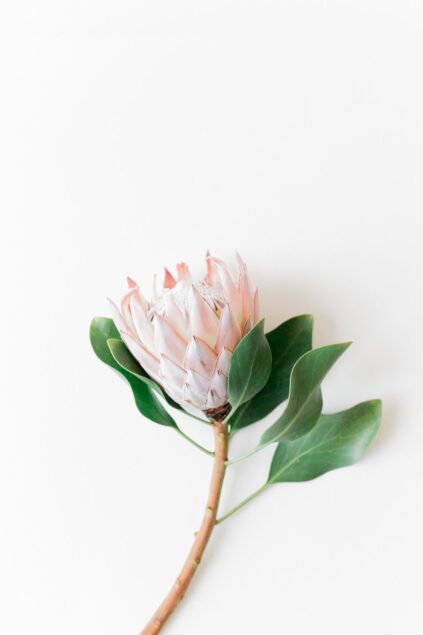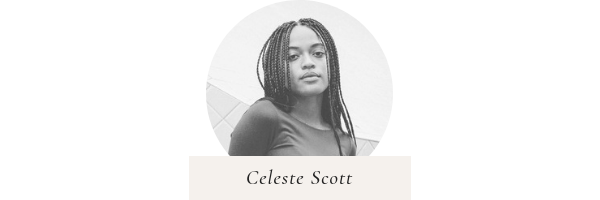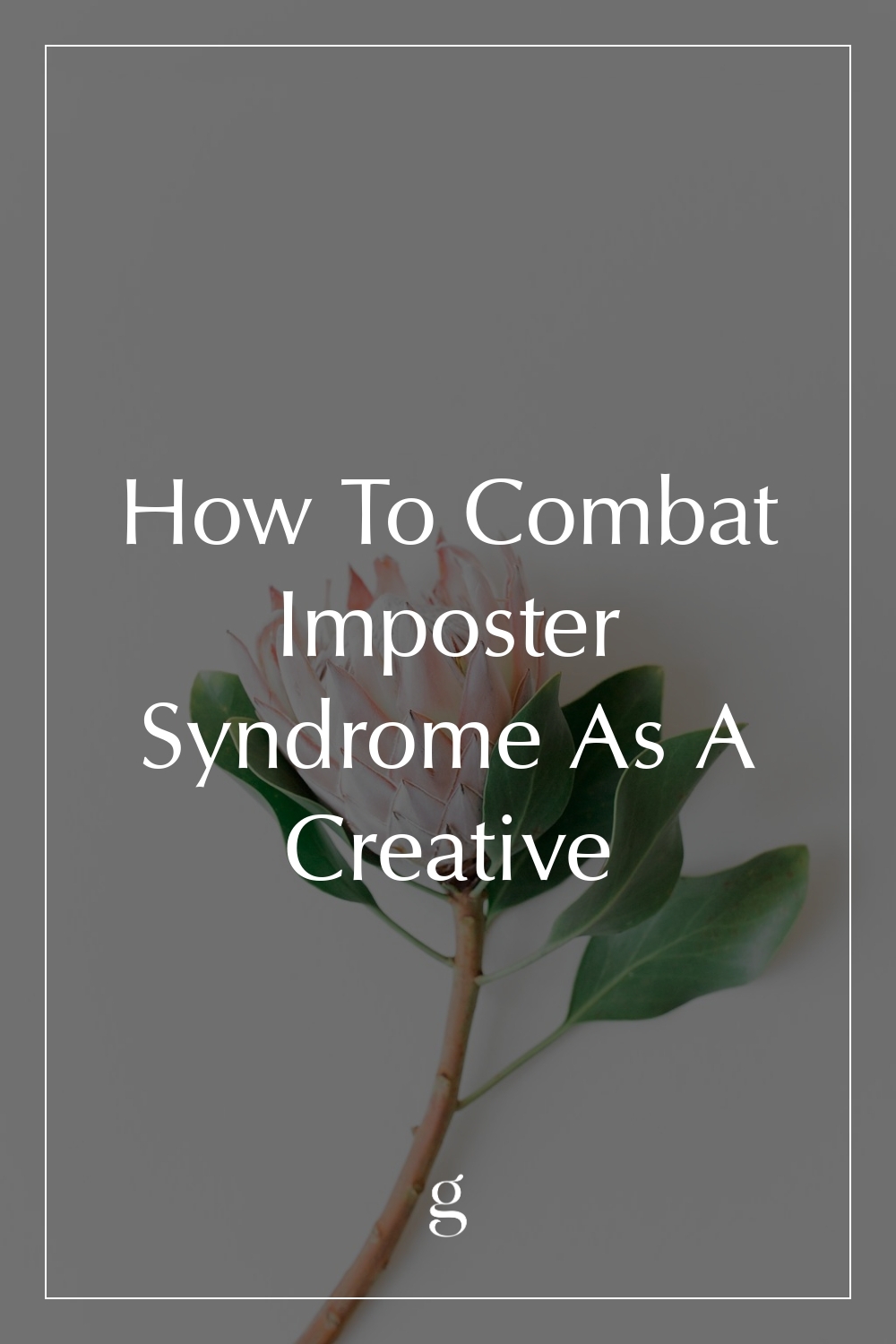
How To Combat Imposter Syndrome As A Creative
I’ve been taking photos for most of my life.
In high school, I was the designated historian of my friend group, taking Polaroids at school dances and backstage during theater shows. It wasn’t until college that I bought my first film camera and took up photography as a more serious hobby. After stumbling through test rolls, trying out different types of film and wasting more rolls of film than I can count, I finally got the hang of it and began to develop my own personal style of photography. Though, I am admittedly proud of how much I’ve improved and the response from others has been overwhelmingly positive, I still struggle with crippling imposter syndrome when it comes to photography.
“Even my most creative friends who have illustrated books or created magazines suffer from this inevitable feeling of fakeness.”
Imposter syndrome is defined by the Harvard Business Review as “a collection of feelings of inadequacy that persist despite evident success.” For creative people, this often manifests as a feeling of fraudulence when it comes to the legitimacy of their craft or talent. Even my most creative friends who have illustrated books or created magazines (you know who you are) suffer from this inevitable feeling of fakeness. Women, I’ve observed, seem to be especially prone to imposter syndrome. Lots of the time, we downplay our successes or discredit them altogether. Too often have I heard my friends say things like, “But I’m not a real writer” or “Oh, but that didn’t actually count.” I would be lying if I said I haven’t said these things myself!
Though sometimes imposter syndrome feels nearly impossible to shake, I’ve adopted a couple of tactics that help me believe in myself a little more and create work that I’m proud of.
Call yourself what you are.
“If you write, you’re a writer. If you illustrate, you’re an illustrator. If you take photos, you’re a photographer.”
It took me a while to get comfortable with calling myself a “photographer.” In my mind there was a certain level of excellence and technical skill I associated with people who were allowed to use that label. Subconsciously I believed that I wouldn’t be a “real” photographer until I’d mastered Lightroom, or until I bought a better lens for my camera. At some point, people began introducing me to others as a photographer. Initially, I was shocked that by merely taking photos and posting them on Instagram, I’d inherited such a lofty title. Eventually, I realized, however, that creative labels are earned simply through a person’s creative practice. If you write, you’re a writer. If you illustrate, you’re an illustrator. If you take photos, you’re a photographer.
I decided to get used to calling myself what I really was. I began introducing myself as a photographer, and changed my bio on my resumé to include the title. Though I recognize that I still have a lot to learn about the craft of photography, I acknowledge and honor my ongoing practice of photography by calling myself a “photographer.” Giving myself this title has made me more confident in my craft, and more excited to continue my practice.
Practice just to practice.
(Aka, you don’t have to post everything on Instagram)
“Practicing your craft outside the confines of social media can take away the impending fear of immediate judgement, allowing for an honest self-evaluation without all of the noise.”
This summer, I took an Instagram hiatus for personal reasons. Even though I wasn’t active on social media, I was still taking photos nearly every week. Sometimes it felt like there was no use in continuing to practice photography if I wasn’t getting feedback from my Instagram followers on the finished product. But in reality, taking photos just to take photos for a time proved to be more helpful for my practice. As creatives, there is often pressure to share our work on social media. And while it is very helpful to get feedback on certain projects, it is also helpful to simply view some of your work as practice material. Practicing your craft outside the confines of social media can take away the impending fear of immediate judgement, allowing for an honest self-evaluation without all of the noise.
Share what you’re proud of
On the other hand, it is extremely rewarding to share work that you, yourself are proud of! Often times as creatives (especially as women creatives), we feel the need to downplay even the work we are proud of. There is no shame in being happy with something you’ve created. There is beauty in having a vision and being able to bring that vision to life. When we’ve successfully done so, it is important to celebrate that victory by sharing the end product with our friends and families—whether that be through social media or other avenues. Sharing work that we’re proud of puts the creative power back into our own hands. It allows us to define our own success based on personal satisfaction, rather than the approval of others.
Make a website
I cannot stress enough how helpful this was for me! Having a personal website to showcase my photography and writing has been integral in helping me feel validated in my creative practice. Having a website is also a great asset when it comes to applying for jobs in your specific creative field. Though you can decide if you’d like to purchase your own custom domain name for your website, there are also tons of free options online as well. I have even seen some pretty impressive Tumblr blogs turned into personal websites that work just fine! In my experience, having a website was a game-changer in giving me confidence in my craft as well as providing a landing page to showcase some of my best work.
Get a creative accountability partner
“When we’re having trouble feeling validated in our practices, these friends can remind us of the truth of our creative identities.”
Though it might sound a bit cliché, having a creative accountability partner has been the most beneficial for my creative self-esteem. A creative accountability partner can be a mentor, a classmate or even a friend. What’s most important in this kind of relationship is that there is space for both people to share their creative process without judgement.
My creative accountability partner is my friend Leah, who’s creative endeavors are very similar to mine. Leah and I often share ideas and collaborate on projects. We also share our wins and losses with each other, encouraging one another and celebrating through the ups and downs. What’s been most helpful though, is the fact that I can share my insecurities with Leah and know that she will offer me the support I need. She also offers constructive criticism where necessary, which has helped me grow tremendously. Sometimes all it takes to start believing in yourself is knowing that you have people in your corner who believe in you. When we’re having trouble feeling validated in our practices, these friends can remind us of the truth of our creative identities.
RELATED READING
Celeste M. Scott is the Social Media Coordinator at The Good Trade. She is a freelance writer who, in her not-so-spare time, dabbles in film photography, podcasting and the occasional YouTube video. She is passionate about race, Internet culture and all things Drake. You can find her work on her website and Instagram.

